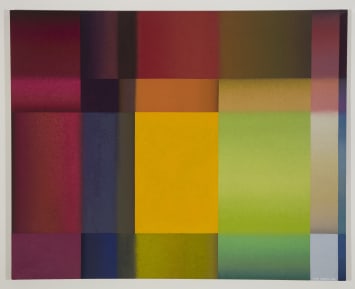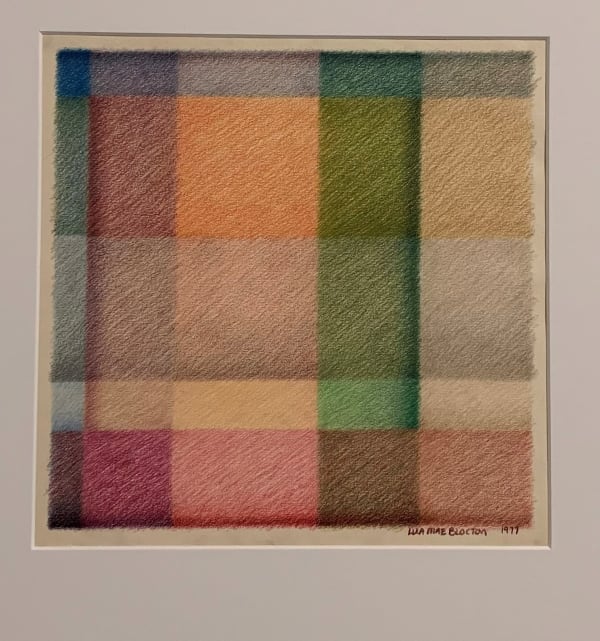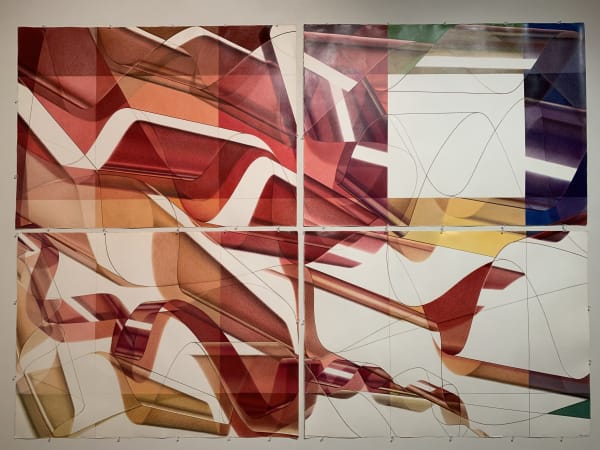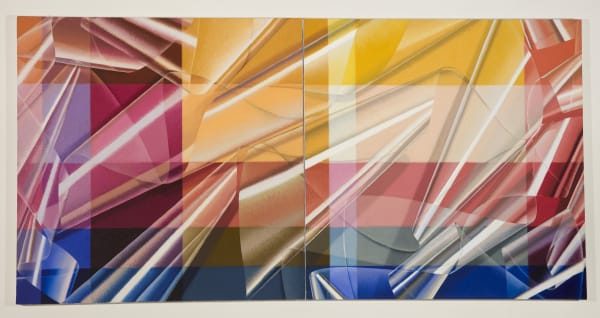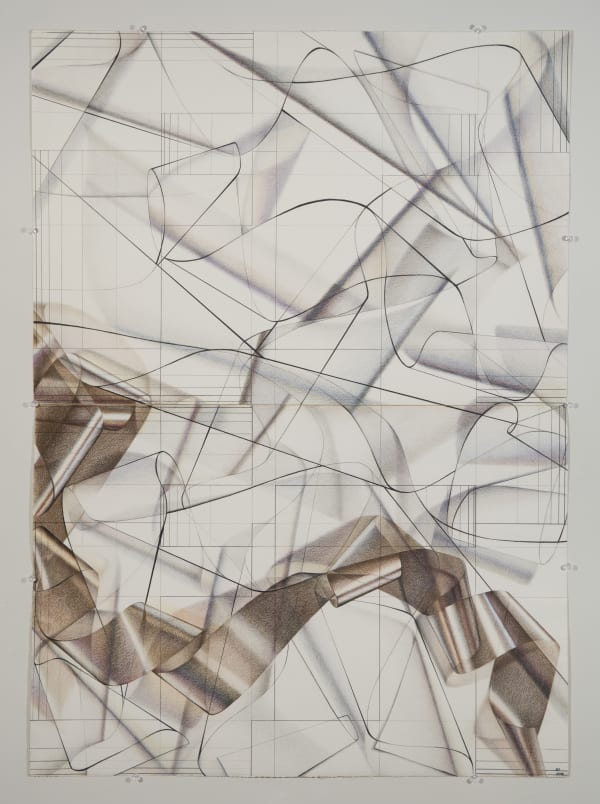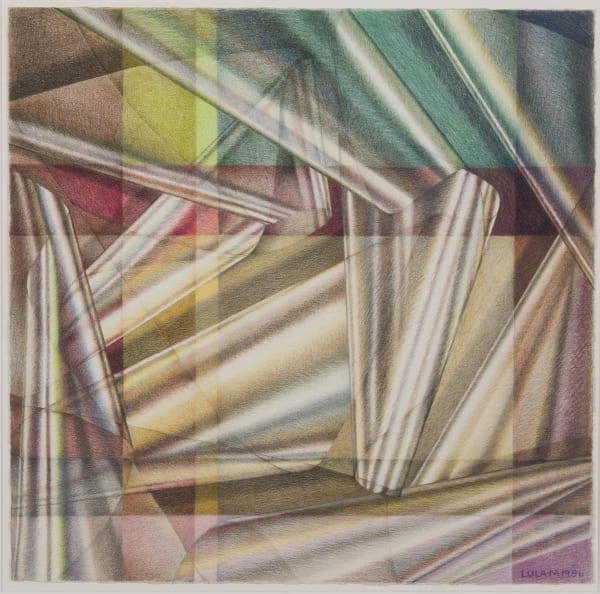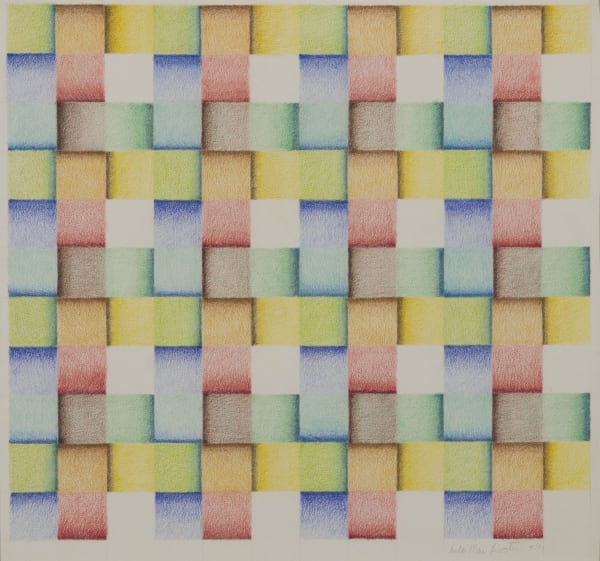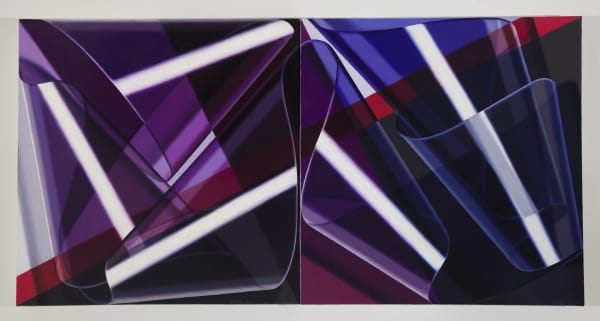Lula Mae Blocton: The First Two Decades, 1970-1990
Lula Mae Blocton moved from Michigan to a loft near Cooper Union in 1972. From her first entry into the art world, Blocton has been fighting for acceptance and visibility of the LGBTQ community and the Black and feminist communities. As she remarks: “There have been two constants in my life: a love of art—formal, precise, abstract—and a concern for human dignity and civil rights.” Like many Black abstractionists, Blocton was criticized for eschewing figuration, for not painting scenes contributing to the political conversation. Nothing could have been further from the truth. Indeed, she claimed abstraction as a right, not the preserve of a privileged few. For her, thoughts about color were as concrete as they were political, personal, and spiritual. In time, Blocton would propose that colors, black, white, and beyond—the entire light spectrum—could evoke, metaphorically, the palette for an inclusive society.
Blocton’s color grids of the 1970s explore the full color spectrum and are at times reminiscent of textile patterns. Her close observation of weavings brought to her paintings an understanding of overlay and colored edges. The hues are lively and rich, the compositions dreamy. In her drawings, the textures are fuzzy and delicate, reminiscent of mohair. In the paintings, light seems to get caught in the brushstrokes. One feels the evocation of sunsets, summer lights, dawns, overcast atmospheric skies, all captured in a grid. Despite their abstraction, Blocton’s 1970’s compositions refer to the atmospheric light of New York City and other sites. The artist sensibility found inspiration in the shift of lights viewed through her windows. In these paintings luminosity comes from the back of the picture as it does in a stain glass. Light manifests itself as a movement through the colors and influences the color gradations. Blocton’s palette shows already the sophistication of a great colorist: her grays have greens, her red oranges, her blues pinks, and her white blues.
In the 1980’s with the Twisted Forms, Transparent Bands series, Lula Blocton entered a phase of horizontal expansion. Space became the center of the exploration. She remembers ”In this series, I aimed to create images that would expand the viewer’s perception of space into multiple dimensions.” The works expressed a new level of energy and dynamism. To extend their reach, Blocton started producing multi-panel works. The artist took on the polyptych in different formats: diptychs and triptychs on canvas and, occasionally, quadriptychs on paper, by combining sheets. The three-dimensional illusionism in this series is remarkable. It combines sculptural modeling to effects of transparencies and light reflections. To compose these works, Blocton set up still lives in her studio with rolls of translucent paper and color grid works set up behind them. The results are drawings and paintings of incredible precision level. These works are made from observations and scrutiny of the objects in front of the artist, in the same way Renaissance masters worked and Picasso set up his cubist guitars. Blocton demonstrates impeccable technique and sense of rhythm in these playful and masterful rendering of reality, which appear completely abstract. Lula Mae Blocton b.1947 is Michigan-born and traces her heritage to a rural community near Selma, Alabama. She earned an MFA from Indiana University and retired as an Emeritus Professor at Eastern Connecticut State University in 2014. She lives and works in Connecticut.
Barbara Stehle, Ph.D
Curator
This exhibition coincides with, and celebrates the release of a new publication Lula Mae Blocton: African American Experience through Color and Pattern, a 225-page monograph with autobiographical text by the artist and an insightful essay by Dr. Barbara Stehle. Published by Palestine Books, it presents an overview of her work from the 1970s until today.
`
-

Lula Mae Blocton
SWPO-Shadows, Windows, Purple, Open , 1990NY Times April 13, 2022What to See in NYC Galleries Right NowLula Mae Blocton at Skoto Gallery, Chelsea….through April 30I encountered Lula Mae Blocton’s art for the first time only three years ago in the traveling exhibition “Art After Stonewall, 1969-1989.” In that febrile, figure-intensive show her abstract geometric painting “Summer Ease” was a meditative stopping point. The politics of the era were present but indirect: The colors were those of the rainbow flag, but tonally nuanced and applied to an off-center grid of rectangles. The work didn’t directly read as gay or Black , or feminist, which may be one reason Skoto’s tight survey of two decades of early work, from 1970-1980, curated by Barbara Stehle, is Blocton’s first New York City solo since 1978.It’s a beauty. The early geometric oil paintings and wonderful colored pencil drawings, with their stroke-by-stroke textures and blurred contours, have the look of soft woven cloth. With the 1980s, their foursquare geometry splinters into diagonals in adjustable, multi-panel compositions. Illusionistic space turns some of these paintings into galactic landscapes. And the interest in prismatic color intensifies: Light, optical and, one senses, metaphorical, becomes a primary subject.Her work beyond the 1980s has been much influenced by African textile designs, as will no doubt be evident in future shows at Skoto, which is planning a career survey as a series of solo exhibitions shows. I look forward to seeing this visual narrative unfold and to being brought up-to-date on what’s happening with this artist-illuminator, who is in her 79s, in the Now.Holland Cotter.
